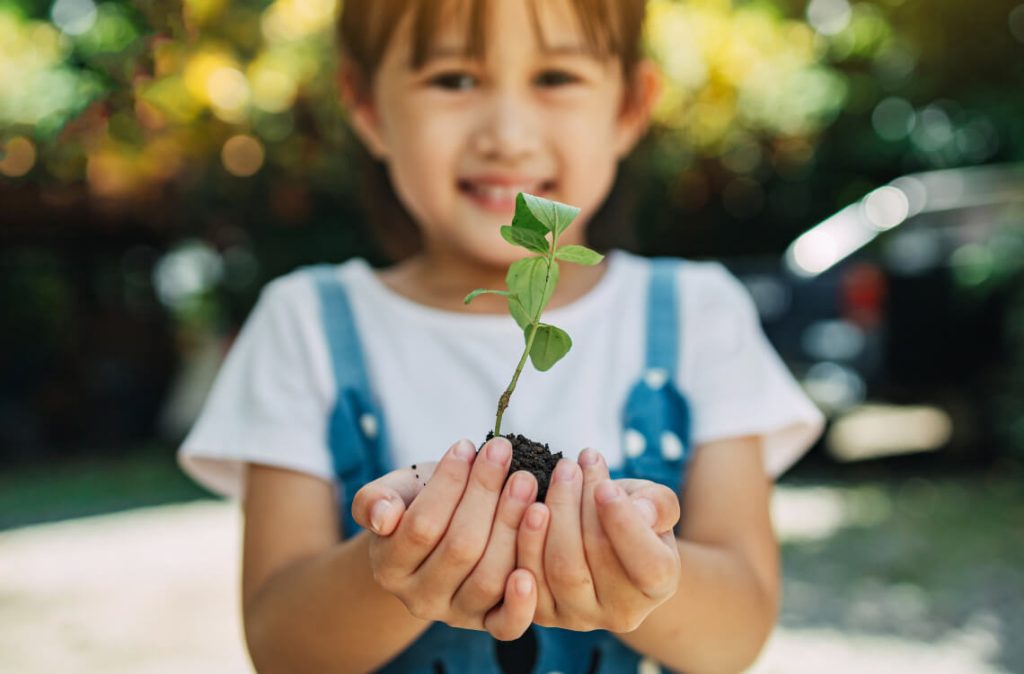There are numerous outdoor activities that your children can participate in.
But, did you know that gardening is one of the best?
It offers a fun way for your children to spend their free time while learning about different plants and honing their skills.
Plus, gardening is one of the best things you can do to encourage children’s holistic development
For a start, your children don’t need acres of land.
Even if you are staying in a high-rise, you can prepare a space on the balcony for your kids to begin gardening.
It could simply be a few pots filled with simple plants or herbs.
Although it may seem like all your kids are doing is watering the plants, gardening involves much more than that.
The activity maximises the use of all of your child’s senses and has the potential to shape your child into a modest, compassionate, and accountable individual.
So, let’s look at how teaching children to garden can benefit them in the long run.
Growing Plants Can Teach Children A Variety of Lessons
Even though gardening is frequently thought of as an adult activity, starting young children out in the garden has significant benefits.
Not only in terms of their motor skills development but also in terms of their emotional growth and general wellbeing.
Studies have shown that gardening can also help autistic children to cope with their syndrome.
The following are some of the many advantages of gardening with kids:
- Activates their senses and motor skills by observing, using gardening tools, and performing all the garden work. They will get to touch and feel the dirt, see the differences between plants, and hear insect sounds, among other things.
- As they care for their growing plants, children gain responsibility and self-confidence. They will need to water the plants, amend the soil, control the sunlight, and perform other tasks to ensure that their plants grow healthy.
- Children can enjoy fresh food and healthy eating from the food they have grown. Potatoes, various herbs, salad leaves, celery, and tomatoes are some of the simplest foods your children can grow at home.
- Learn to cooperate while fostering family bonding. Working in the garden with the kids is a great way to teach teamwork while also getting to spend quality time together.
- Teaches patience as well as planning and organisation skills. Gardening is frequently a slow process, so waiting for the plants to grow necessitates patience and forethought.
- Understanding how plants die without water and/or sunlight, as well as the importance of avoiding pollution and using natural pesticides, can foster environmental understanding and care.
- Offers fun, moderate exercise that improves health and wellbeing. Gardening is a type of healthy activity that can produce powerful positive emotions and improve moods.
What If Your Kids Do Not Want to Garden?
Now that you know how beneficial gardening can be for kids, you can’t simply force them to start planting seeds.
Many kids will feel that doing garden work is boring will find garden work boring, so try some of these Better Health Channel suggestions to get children involved and interested in learning to garden:
- Make gardening as simple as possible.
- Provide children with their own garden area. Begin with a large container or a few pots.
- Include older children in the garden’s planning and design.
- Use lightweight, easy-to-handle, and appropriately sized tools and garden equipment.
- Encourage children to dig in the dirt.
- Grow unusual plants like sunflowers, corn, pumpkins, tomatoes, and strawberries.
- Grow beans or sweet peas in a trellis or teepee.
- Plant flowers that attract butterflies, ladybirds, and other interesting insects or birds.
- Make a scarecrow.
- Install a water feature, a birdbath, or a sundial.
- Set up a worm farm.
- Visit community gardens, children’s farms, or botanic gardens for inspiration.
And remember that the most important aspect of this gardening activity is for the children to have fun while learning.
Happy gardening, parents and kids!
Disclaimer: The information provided in this article is for informational purposes only and should not be considered as medical advice from Motherhood. For any health-related concerns, it is advisable to consult with a qualified healthcare professional or medical practitioner.
For more insightful stories and fun recipes, stay tuned to Motherhood Story!
